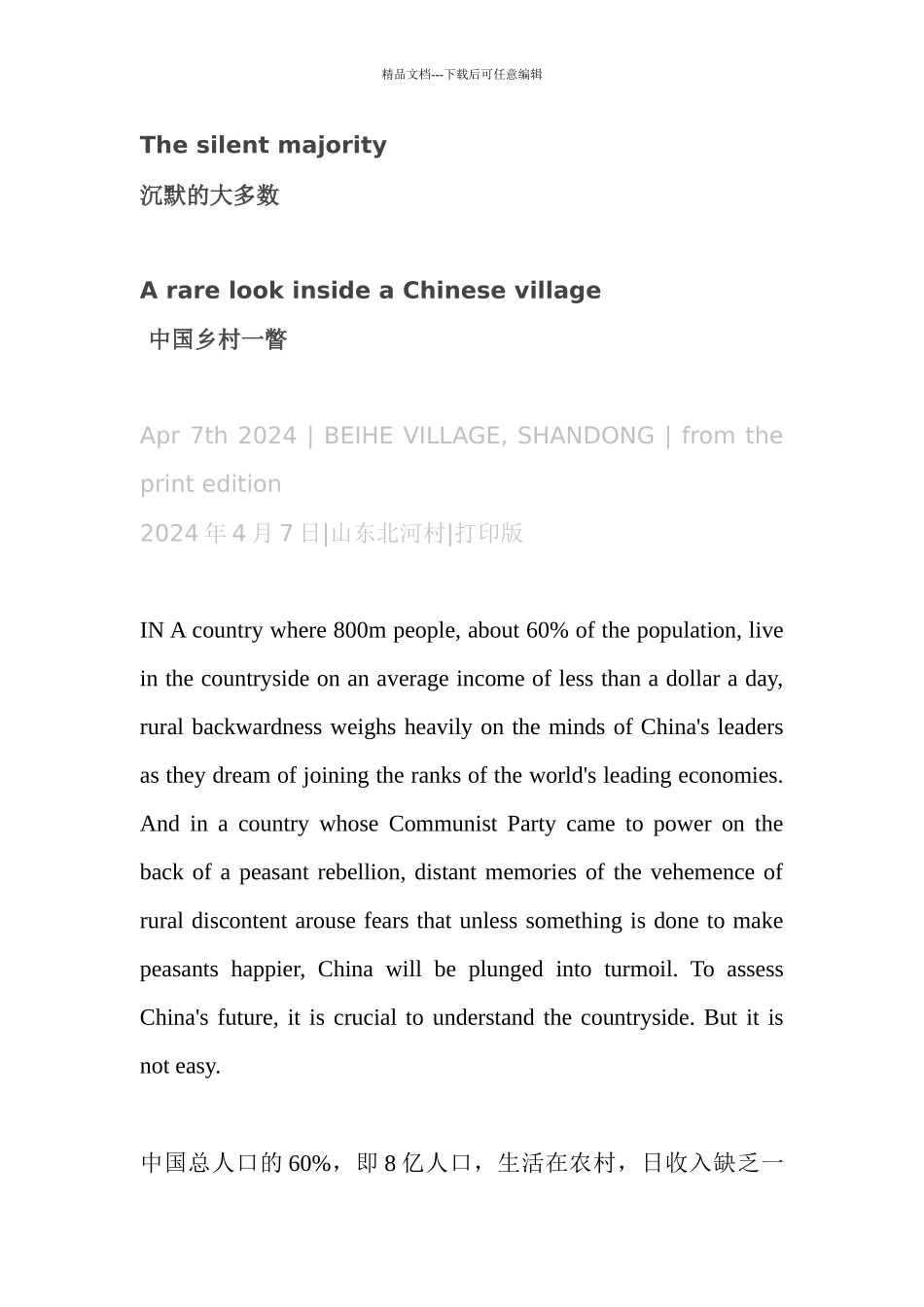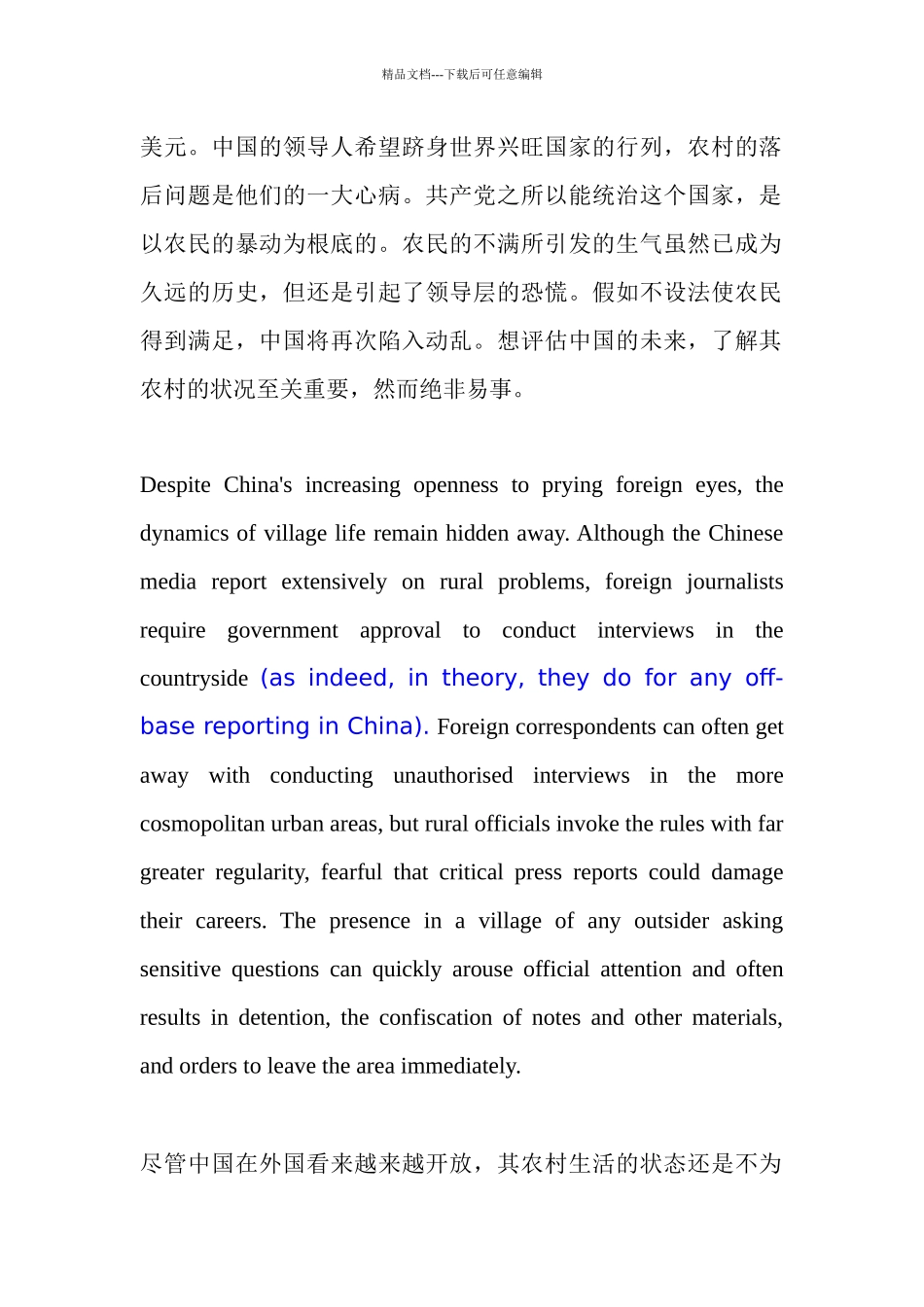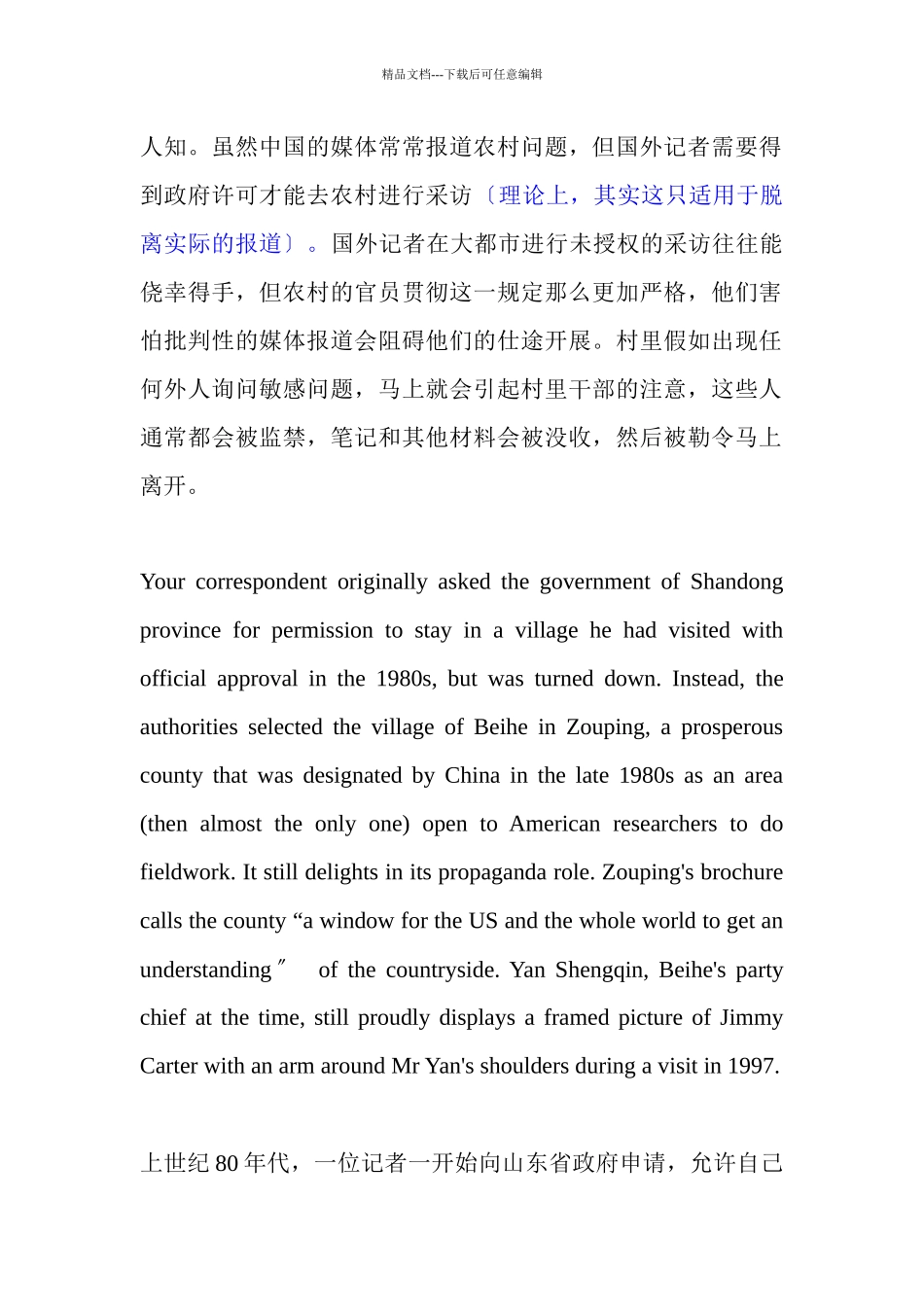精品文档---下载后可任意编辑The silent majority沉默的大多数A rare look inside a Chinese village 中国乡村一瞥Apr 7th 2024 | BEIHE VILLAGE, SHANDONG | from the print edition2024 年 4 月 7 日|山东北河村|打印版IN A country where 800m people, about 60% of the population, live in the countryside on an average income of less than a dollar a day, rural backwardness weighs heavily on the minds of China's leaders as they dream of joining the ranks of the world's leading economies. And in a country whose Communist Party came to power on the back of a peasant rebellion, distant memories of the vehemence of rural discontent arouse fears that unless something is done to make peasants happier, China will be plunged into turmoil. To assess China's future, it is crucial to understand the countryside. But it is not easy.中国总人口的 60%,即 8 亿人口,生活在农村,日收入缺乏一精品文档---下载后可任意编辑美元。中国的领导人希望跻身世界兴旺国家的行列,农村的落后问题是他们的一大心病。共产党之所以能统治这个国家,是以农民的暴动为根底的。农民的不满所引发的生气虽然已成为久远的历史,但还是引起了领导层的恐慌。假如不设法使农民得到满足,中国将再次陷入动乱。想评估中国的未来,了解其农村的状况至关重要,然而绝非易事。Despite China's increasing openness to prying foreign eyes, the dynamics of village life remain hidden away. Although the Chinese media report extensively on rural problems, foreign journalists require government approval to conduct interviews in the countryside (as indeed, in theory, they do for any off-base reporting in China). Foreign correspondents can often get away with conducting unauthorised interviews in the more cosmopolitan urban areas, but rural officials invoke the rules with far greater regularity, fearful that critical press reports could damage their careers. ...


